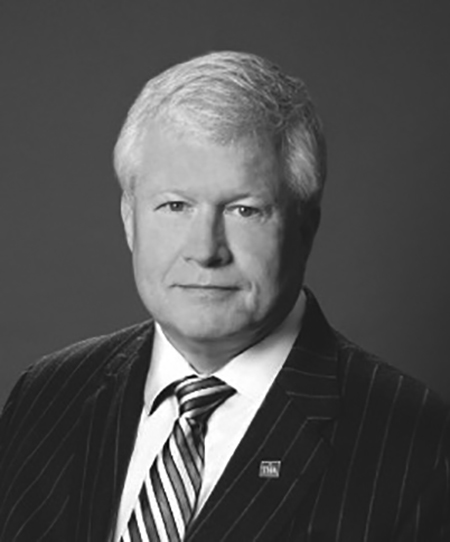 Special to Medical Journal – Houston
Special to Medical Journal – Houston
By TED SHAW, President/CEO, Texas Hospital Association
When Hurricane Harvey made landfall between Port Aransas and Port O’Connor in late August 2017, it was the first Category 4 hurricane to hit the U.S. in 13 years. Over the course of a week, the storm dumped more than 60 inches of rain and forged a path of destruction from Rockport, Texas to Cameron, Louisiana. Twenty hospitals were forced to close or evacuate, and more than 5,300 Texans were cared for during both the rescue and recovery efforts, according to the Federal Emergency Management Agency.
Hurricane Harvey was atypical in many respects, not the least of which was the fact that it morphed into such a massive storm in a very short amount of time. Communities and residents typically have five to seven days to prepare for an impending hurricane, but the preparation time for Harvey was less than 50 hours. This short window of time meant that many communities were insufficiently prepared to handle the monstrous storm when it hit. Hospitals reported a lack of capacity among the shelters that were open and operational to care for residents with medical challenges, particularly those with quadriplegia, those requiring dialysis and those who were ventilator-dependent or otherwise medically fragile.
Although federal law requires general population shelters to be equipped to meet the needs of people with medical conditions and provide dialysis and medical oxygen, for example, during Harvey, some shelters could not care for people with medical needs, and they turned to hospital emergency departments, despite not requiring acute medical attention.
When the enormity of the hurricane became known, and news of its epic damage broke, physicians, nurses, first responders, mental health professionals, and allied health care professionals from across the state and country clamored to volunteer their time, energy and professional expertise. The need for their services was enormous. But coordinating such a large response can be a challenge, and during Hurricane Harvey, Texas hospitals reported impediments to using volunteer resources effectively and efficiently. Chief among them was that many health care professionals ultimately chose not to volunteer for fear of potential liability.
Existing laws limit liability for volunteer health care professionals who are affiliated with nonprofit organizations and for facilities with nonprofit status. In addition, Texas law specifically limits liability when health care professionals volunteer at the direct request of a governmental entity or when health care professionals provide emergency care.
Ensuring timely access to quality care health for all Texans, regardless of location or circumstance, is a priority for Texas hospitals and Texas physicians. The Texas Hospital Association and the Texas Medical Association worked with Houston-area lawmakers, Sen. Joan Huffman and Rep. Tom Oliverson, to file legislation during the legislative session currently underway to encourage licensed health care professionals in good standing to volunteer their medical expertise to ensure timely access to essential health care services during disasters, such as a hurricane or terrorist attack.
Senate Bill 752 and House Bill 1353 specifically would expand liability protections for volunteer health care professionals—unless there is reckless conduct or intentional, willful or wanton misconduct—and health care facilities that sponsor the care or assistance during the wake of a manmade or natural disaster. The legislation also would grant immunity to licensed, out-of-state health care professionals who are in good standing if the governor issues a disaster proclamation. As of early April, the full Texas Senate has passed the bill, and it awaits a House committee hearing.
Texans have big hearts, and in a disaster, they want to help. The commonsense legislation pending in the Texas Capitol will make it easier to use that compassion and volunteer spirit.


